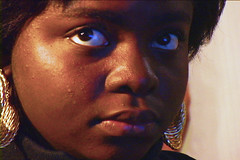If knowledge is power, then it comes at a too hefty a price for promising students in Philadelphia and beyond. This is the primary theme in Ben Herold’s groundbreaking documentary First Person, which chronicles six inner-city students who dream of attending a four-year university.
To rally up support for the education of young Philadelphians, Herold will provide a free citywide screening of the movie on Sept. 25 in more than 55 locations. They include Temple’s Ritter Hall, five branches of the Free Library of Philadelphia, and the broadcast premier on WHYY-TV at 7:30 p.m.

“I think that Philly audiences get a sense that these are our city’s kids,” Herold said. “The six students featured [in the documentary] are not all stars and they’re not kids who are going to make it no matter what. But they are also not knuckleheads, corrupts and troublemakers that you hear about on the news.”
The documentary begins on the first day of 11th grade and ends with graduation. It captures intimate portrayals of the students at home, in the classroom and with their loved ones, while they juggle their social and family lives with school and sobriety.
Herold credited much of the momentum surrounding the documentary to Philadelphia Academies Inc., a non-profit organization that helps students develop career-focused goals. The president is none other than the city’s First Lady Lisa Nutter.
“One of the things that the Nutter administration has done that really resonates with First Person is really putting out some ambitious goals as to what we should aspire for as a city, like cut the dropout rate in half and double college graduates,” Herold said.
Achieving such goals will be an upward battle. Herold said that he met the six students while conducting research for his urban studies thesis. They attended Temple’s now-defunct Young Scholars Program, which was a four-year college prep course that provided students with laptops, graphic calculators and – if accepted to Temple – an academic scholarship.
But the program folded before the students could take advantage of its benefits. Furthermore, Herold’s documentary reaches a troubling conclusion when, despite their satisfactory grades, none of the six students are accepted into a four-year university.
Philadelphia is a small part of the larger educational crisis in the United States, but Herold believes that living in the city compounds the problem.
“I think most high schools and secondary education in the U.S. are working off an outdated model that is not geared toward providing real-world experience in a contemporary global community,” he said. “On the other hand, you can’t talk about the problem that young people in Philadelphia face [without mentioning factors] like racism and poverty that create a whole added level of obstacles and challenge.”
Both Herold and Nutter believe that if more adults volunteered in community organizations and mentored young people, they could help to alleviate the problem. Philadelphia Academies Inc. eventually created a fund for the students in First Person to pay for their ongoing education, which Herold believes played a major role in landing four of the six students into college.
Nutter stressed the importance of what she called the “three ships”: internships, mentorships and scholarships for young people. Philadelphia Academies Inc. works with local businesses to host six-week mentoring programs and workshops to develop a rapport with the students and teach them real-world skills like resume writing and mock interviews. But anyone can offer counsel and support to young students.
“Any type of positive adult interaction [helps],” Nutter said. “Sometimes it’s as simple as shaking a kid’s hand, looking them in the eye and asking them where they are headed. These simple interactions really do make a difference, and if they didn’t, they wouldn’t keep remembering them 10 years out.”
Jimmy Viola can be reached at jimmy.viola@temple.edu.



Be the first to comment